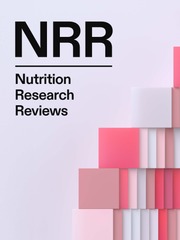No CrossRef data available.
Article contents
Re-assessing the role of peri-operative nutritional therapy in patients with pancreatic cancer undergoing surgery: a narrative review
Published online by Cambridge University Press: 05 September 2023
Abstract
Pancreatic cancer is the most common medical condition that requires pancreatic resection. Over the last three decades, significant improvements have been made in the conditions and procedures related to pancreatic surgery, resulting in mortality rates lower than 5%. However, it is important to note that the morbidity in pancreatic surgery remains r latively high, with a percentage range of 30–60%. Pre-operative malnutrition is considered to be an independent risk factor for post-operative complications in pancreatic surgery, such as impaired wound healing, higher infection rates, prolonged hospital stay, hospital readmission, poor prognosis, and increased morbidity and mortality. Regarding the post-operative period, it is crucial to provide the best possible management of gastrointestinal dysfunction and to handle the consequences of alterations in food digestion and nutrient absorption for those undergoing pancreatic surgery. The European Society for Clinical Nutrition and Metabolism (ESPEN) suggests that early oral feeding should be the preferred way to initiate nourishing surgical patients as it is associated with lower rates of complications. However, there is ongoing debate about the optimal post-operative feeding approach. Several studies have shown that enteral nutrition is associated with a shorter time to recovery, superior clinical outcomes and biomarkers. On the other hand, recent data suggest that nutritional goals are better achieved with parenteral feeding, either exclusively or as a supplement. The current review highlights recommendations from existing evidence, including nutritional screening and assessment and pre/post-operative nutrition support fundamentals to improve patient outcomes. Key areas for improvement and opportunities to enhance guideline implementation are also highlighted.
- Type
- Review Article
- Information
- Copyright
- © The Author(s), 2023. Published by Cambridge University Press on behalf of The Nutrition Society





